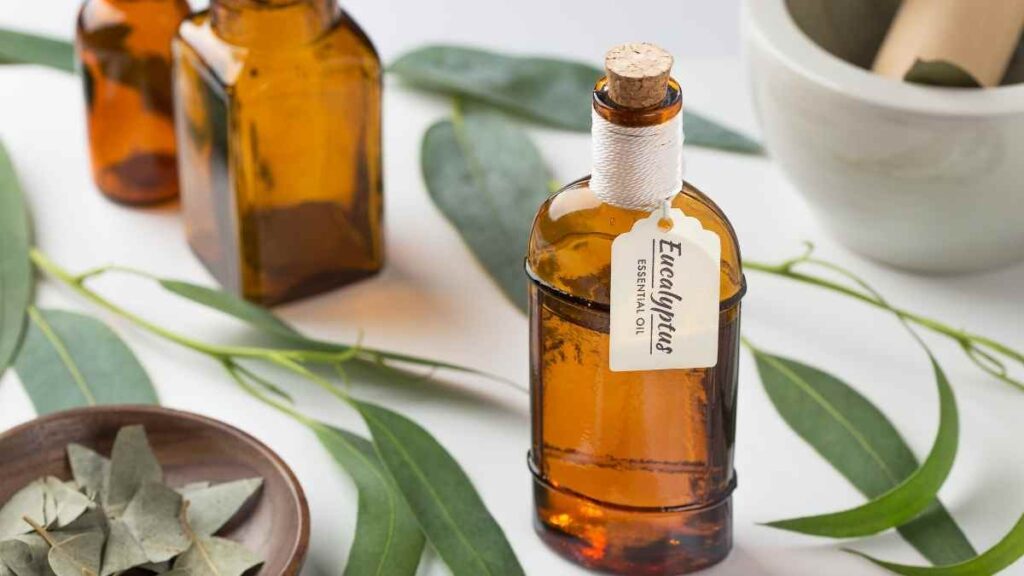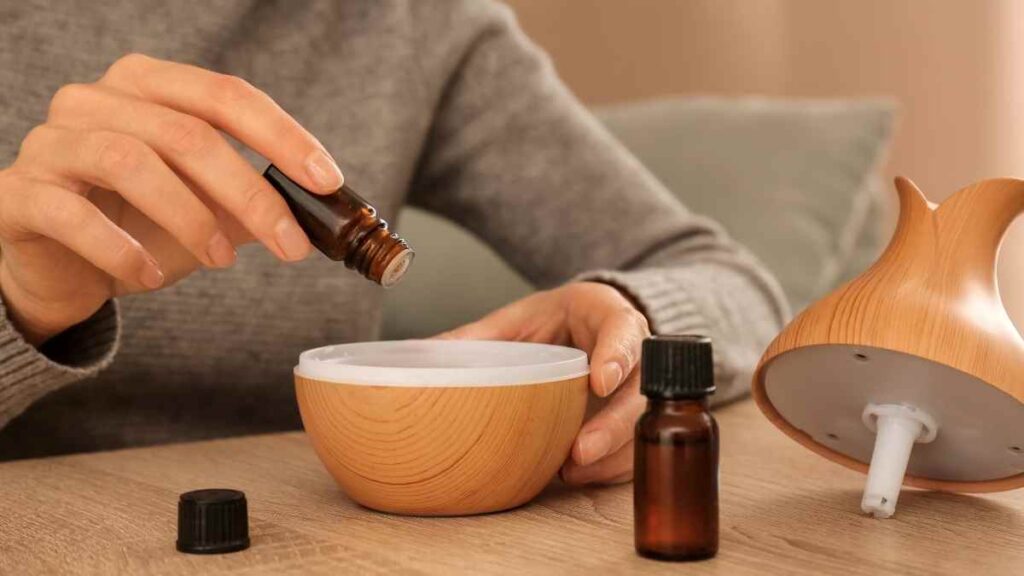When the cold and flu season hits, it’s important to have a few essential oil diffuser recipes to help you get relief.
These recipes use essential oils known for fighting off colds and other respiratory infections.
This blog post will provide 11 of our favorite oil diffuser recipes for cold relief.
We will also discuss the benefits of each oil and how to use them.

Essential Oils for Colds – Our Guide

Introducing the 11 essential oils for cold relief
I use the following essential oils to alleviate cold and flu-like symptoms as soon as they start.
- Eucalyptus oil – Eucalyptus oil is another oil that is great for decongestion. It also has antiseptic properties that can help fight off infection.
- Peppermint oil – Peppermint oil is one of the most well-known essential oils for cold relief. It is a natural decongestant and can help clear sinuses and respiratory passages.
- Chamomile oil – Chamomile has been shown to relieve cold symptoms.
- Tea tree oil – Tea tree oil is a powerful antiviral and antibacterial oil. It can help destroy viruses and bacteria that cause colds and other respiratory infections.
- Lavender oil – Lavender oil is a soothing oil that can help relieve congestion and promote relaxation.
- Lemon oil – Lemon oil is a refreshing oil that can help clear nasal passages and boost the immune system.
- Oregano oil – Oregano oil is a potent oil with antiviral, antibacterial, and antifungal properties.
- Thyme oil – Thyme oil is also a strong oil with antiviral, antibacterial, and antifungal properties.
- Rosemary oil – Rosemary oil is a stimulating oil that can help improve circulation and boost the immune system.
- Clove oil – Clove oil is a warming oil that can help fight off infection.
- Cinnamon oil – Cinnamon oil is a warming oil that can help improve circulation and fight infection.
Each of these oils has unique properties that make them ideal for fighting off colds.

How to use essential oils for cold relief
There are a few ways to use essential oils for cold relief.
The most common ways are to diffuse them in an oil diffuser or use them in a steamer (for inhalation). The NAHA recommends several methods, but the best is a steam bowl, where you should place essential oil in a bowl of hot water, lean over the bowl covering your head with a towel. Please be careful when dealing with hot water, and do not get too close to it.
You can also put them in a hot bath or inhale them directly from the bottle.
If you are using an oil diffuser, add a few drops of oil to the water and diffuse for 30-60 minutes. You can also add the oil to a humidifier.
If you are taking a hot bath, add a few drops of oil to the bathwater. Soak in the tub for 20-30 minutes.
If you inhale the oil, put a few drops of oil on a tissue and hold it close to your nose. Inhale deeply for a few minutes.
You can also add oil to a diffuser necklace and wear it around your neck. This will allow you to smell the oil all day long.
Recipes for diffusers, sprays, and more
Many different recipes can be used for oil diffusers when experiencing cold symptoms. Here are a few of our favorites:
- Eucalyptus and Peppermint: This is a great combination to help clear your head and open your airways.
- Lemon and Tea Tree: This is an excellent disinfectant combination that can help fight off any cold germs.
- Thyme and Rosemary: This is a great combination to help boost your immune system.
- Cinnamon and Clove: This is a great combination to help warm your body and fight off any infection.

Other ways to use essential oils for cold relief
In addition to using essential oils in oil diffusers, there are other ways that you can use them to get relief from cold symptoms.
Essential oils can be added to a hot bath, inhaled directly from the bottle, or put in a diffuser necklace and worn around your neck.
Bonus tips on staying healthy during the winter season
The winter season can be a challenging time for staying healthy.
Here are some bonus tips to help you stay healthy during the winter season:
- Avoid close contact with people who are sick.
- Wash your hands often and avoid touching your face.
- Stay warm and dry.
- Drink plenty of fluids.
- Get enough rest (Essential oils can help you sleep too).
- Eat healthy foods.
- Stay active.
Risks of using essential oils
Check here (article on WebMD) for the risks of using essential oils.
Essential oils are potent and can be harmful if not used correctly. They should not be taken internally and should always be diluted with a carrier oil before use.
Peppermint oil SHOULD NOT be used on infants, as it has been shown to cause breathing difficulties.
Some oils can cause skin irritation, so it’s essential to do a patch test before using them on your skin.
Pregnant women and people with allergies or sensitivities should consult a doctor before using essential oils.
Conclusion
Now that you’ve learned about all of these different ways to make your house smell good, it’s time for you to try a few out. So pick the ones that sound the best to you and give them a shot.
Your home will smell great, but you may also find that it feels more comfortable and inviting. You may notice improvements in your mood and energy levels too!
Have any of your tips or tricks for making your house smell amazing? Share them with us in the comments below!
